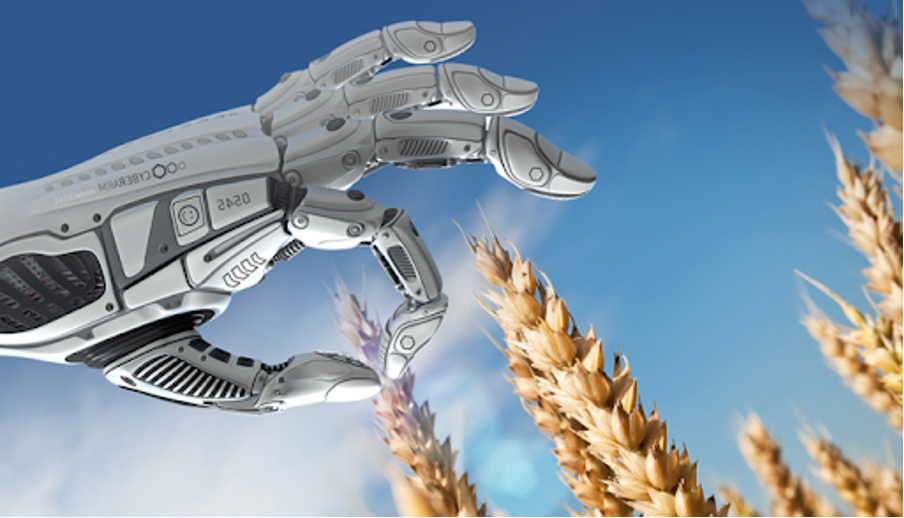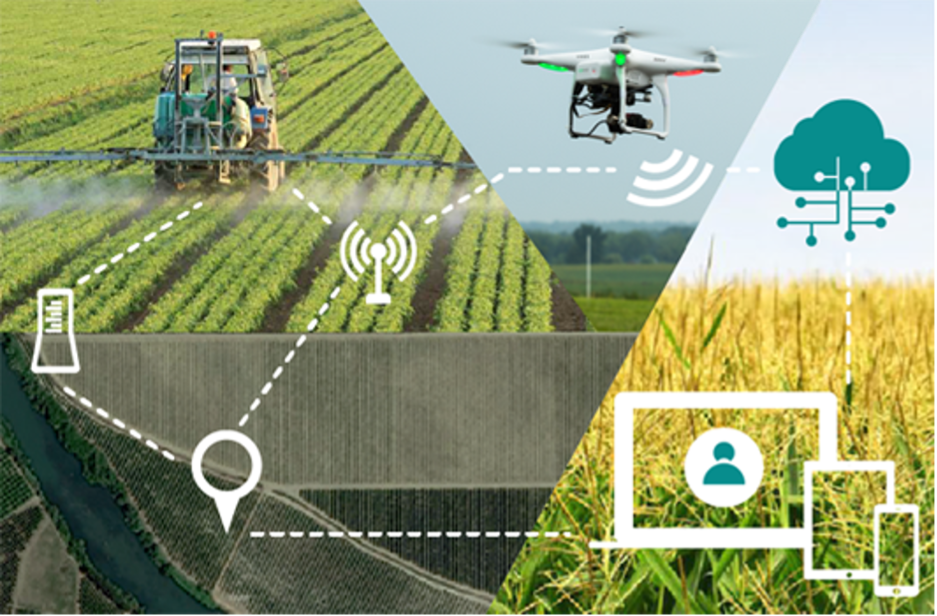
The agriculture sector is undergoing a significant transformation with advancing technology. Artificial intelligence offers unique opportunities to increase the efficiency of farming, utilize resources more effectively, and optimize agricultural processes. AI-based technologies are shaping the future of agriculture in the following ways:
1.Sensor Technology and Data Analytics: Agricultural sensors can continuously monitor a range of data from soil moisture to air quality.
These data, analyzed by artificial intelligence algorithms, provide farmers with real-time information on soil health, plant growth conditions, and water management. This enables farmers to make better decisions and use resources more efficiently. .
2.Automated Farming Machinery:
Artificial intelligence can automate various agricultural equipment, from tractors to harvesters. This saves time and labor for farmers. Additionally, these machines can adapt to environmental variables through sensors, allowing for more precise and efficient farming practices.
3.Plant Recognition and Disease Detection:
Artificial intelligence can be effectively used for plant recognition and disease detection through image processing algorithms. This enables farmers to intervene early in diseases and optimize plant health.
4.Prediction and Planning:
By correlating with climate conditions, market demands, and other factors, artificial intelligence can make predictions for future agricultural activities. This allows farmers to better plan and prepare against risks.
5.Smart Irrigation Systems:
Artificial intelligence can optimize smart irrigation systems by continuously monitoring soil moisture and plant needs. This saves water and improves plant health.

Innovations Increasing Efficiency and Sustainability
AI applications in agriculture can be grouped into agricultural robots, soil and crop monitoring, and analytical predictions. Agricultural robots in the industry are classified as open-field and indoor robots. While indoor robots are mostly used in the food industry, open-field robots incorporate the latest technologies (such as cameras, sensors, and navigation) in agriculture. Mainly used in fruit and vegetable harvesting, these robots also have the capability to process the harvest automatically. In addition to harvesting robots, planting, watering, pruning, spraying, grazing, and silage robots are also among open-field robots.
AI-based farming technologies play a crucial role in making the future of agriculture more sustainable, efficient, and environmentally friendly. These technologies not only provide farmers with a competitive advantage but also move global food production towards a more sustainable direction.
As Farmologists, our goal is to develop these technologies to make Turkish farmers the most profitable businesses in the country and to move them into a sustainable position.

